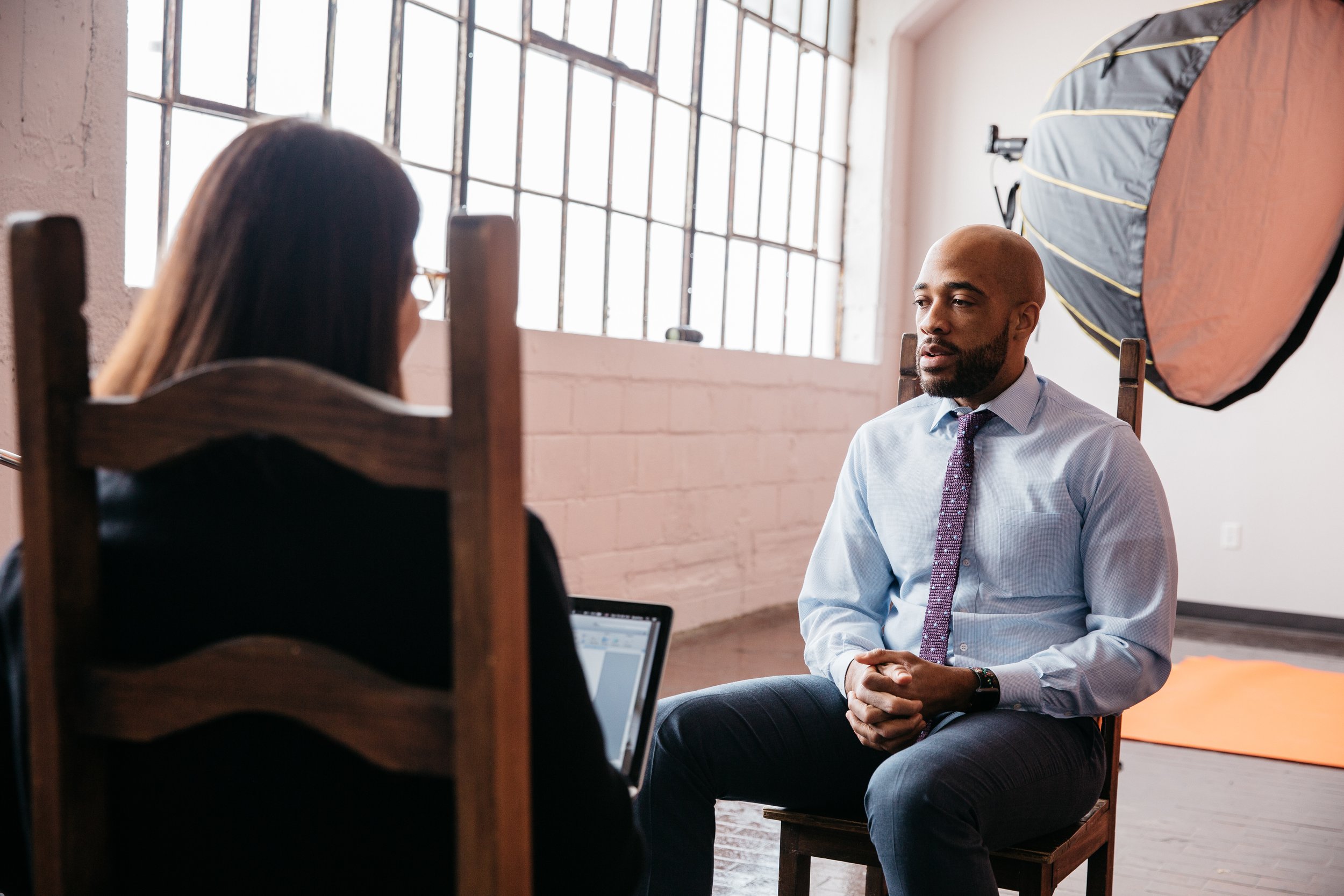The Other Mandela
This morning I ran into Lt. Governor Mandela Barnes at my neighborhood coffee shop. I have a soft spot for some politicians because I think of public service as one of the most thankless jobs. (Kind of like being a mom sometimes!) After just an hour with him, I could tell Mandela is in politics because he genuinely cares about his community.
I wrote this story in 2021 for a magazine called Ynot Me that never fully took off. But because I found him to be so affable and real, I had to share my take on him.
Mandela Barnes isn’t your typical politician. He shies away from the limelight when possible and considers himself an introvert. He’s tattooed, but sharply dressed in grey wool pants and a lavender knit skinny tie as we sit down to dig into how he captured the title of the first African American Lieutenant Governor in Wisconsin history. At 32, he’s also the youngest Lieutenant Governor in the nation.
Even though he’s in a position of power, he still has weaknesses. Barnes loves to watch TV, especially the quirky comedy “Curb your Enthusiasm” and he only works out to offset his peanut butter addiction and insatiable sweet tooth.
Named after former South African President Nelson Mandela, Barnes’ parents had high hopes and expectations for their only child. “Growing up, it was hard,” he admits. “Everyone reminded me that I had a lot to live up to. I couldn’t do anything wrong because I was the only Mandela on the block. But the older I got, the more I appreciated it.”
Barnes’ parents put him in every activity from baseball and football to tap dance. He had a wild imagination and spent a lot of time outside, bouncing back and forth between his friends from his childhood neighborhood, and his school friends; after they moved to a predominately white neighborhood during elementary school.
Like many other kids, Barnes dreamed of being a football player or an astronaut. It wasn’t until high school through groups like Top Teens of America, student government and NAACP that he learned about community service and got his first taste of leadership. At Marshall High School, Barnes got involved with a video production program and became interested in broadcasting, staying on that track in college.
After skipping a grade in school, Barnes went off to Alabama A&M University when he was just 16. Overzealous with his newfound freedom, he ended up on academic probation after his first semester. Barnes recognizes now that he was too immature to be on his own so young. “I was trying to figure out who I was and I felt like I had something to prove,” he says.
Barack Obama’s 2004 DNC speech was the turning point that inspired him to pursue politics. Also, his fraternity brother Anthony Daniels, who became the first black Alabama House Minority Leader made him realize that he too, could achieve at that level.
Barnes graduated with a Bachelor’s degree in mass communications in 2008. After returning to Milwaukee, he worked as an unpaid intern for Milwaukee Mayor Tom Barrett and later (reluctantly) as a receptionist. After being laid off – ironically – from The Workforce Development Board in Milwaukee County, Barnes filed for unemployment and assistance from the state. He quickly learned firsthand why people end up having to make difficult choices. But he takes this obstacle as an asset – to help inform his view on issues.
After losing his race for State Senate in 2016, Bares thought that he would be done with politics for a while. But the work Barnes did with The State Innovation Exchange (SiX), a national organization that advances progressive policies, motivated him to run again. “Not knowing who the nominee would be, I wanted to be helpful to the ticket by bringing new ideas and a fresh perspective to the campaign,” he said. “Post primary, I knew that being on the ticket with Evers gave us a shot that we didn't have before.”
So what’s first on his agenda as Lieutenant Governor? As a public figure he is learning to let go of his privacy and personal time, because even when he’s “off the clock” people still approach him and ask for his help in resolving personal issues. “I know I don’t have all the answers and a lot of people are afraid to admit that,” he reveals. “But this position allows me to learn, get questions answered and show a perspective that might have been missed.”
Though Barnes’ father was always strict, he was encouraging. He recalls a comment his dad made to him after winning the 2018 election: “You know son, I knew things would turn out well for you, but you did a little better than I though you would.”
Photo cred: Karen Oliva
Photo cred: Karen Oliva


